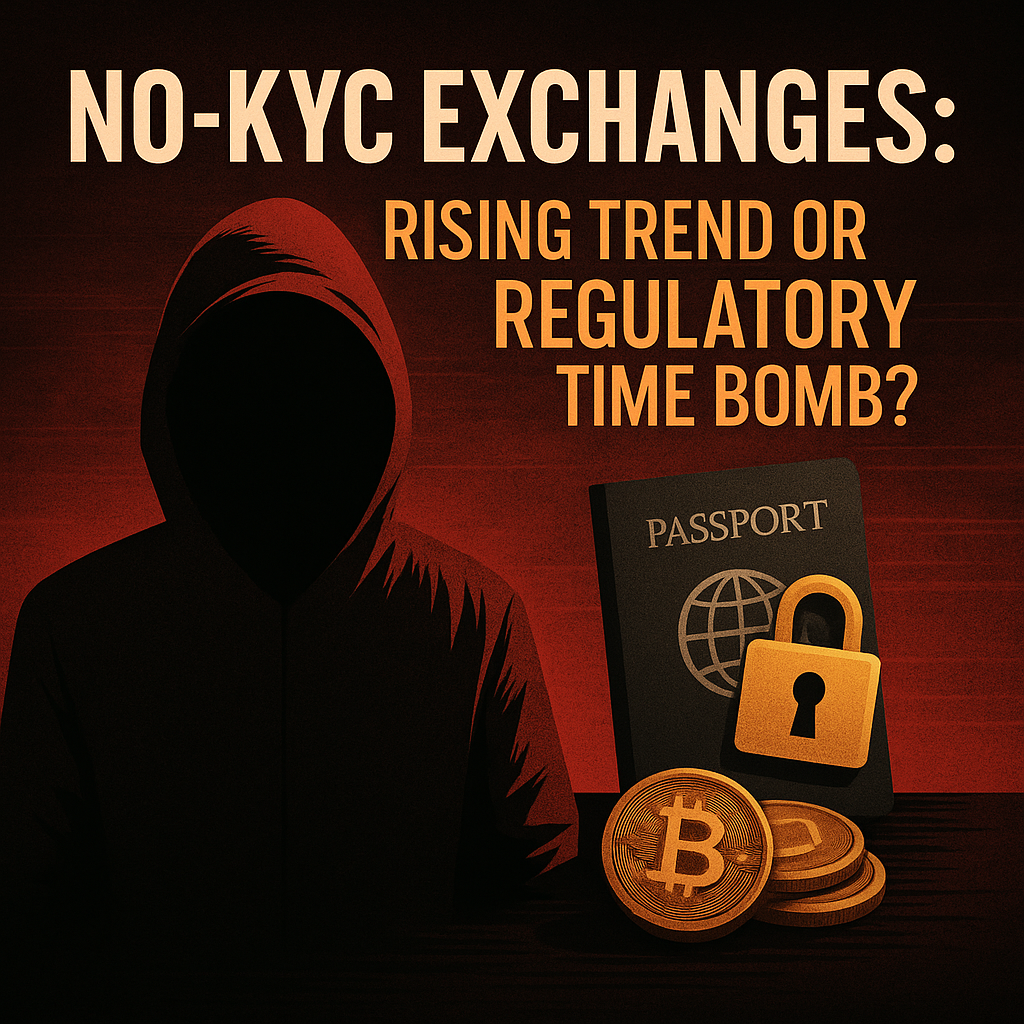In the world of crypto, decentralization and privacy are foundational principles. But as regulations tighten globally, a new trend has begun to re-emerge with greater force: No-KYC (Know Your Customer) exchanges.
These platforms allow users to trade, swap, or stake cryptocurrencies without submitting identity verification documents. To many, this feels like a return to the original spirit of crypto. But to others — including regulators — it’s a growing risk vector.
Let’s explore why No-KYC exchanges are trending, what’s fueling their adoption, and the real risks behind the freedom they offer.
🔍 Why No-KYC Exchanges Are Gaining Popularity
- Privacy First
Users are becoming increasingly aware of how much personal data centralized exchanges collect — and how vulnerable that data is to breaches. - Ease of Access
No long approval queues. No passport uploads. Just connect a wallet and trade. - Geopolitical Constraints
In countries with capital controls or crypto bans, No-KYC platforms provide an accessible path to the broader crypto economy. - Global DeFi Momentum
As decentralized finance (DeFi) grows, people are used to self-custody and anonymous interaction. No-KYC exchanges feel like a natural extension of that behavior.
⚖️ The Regulatory Dilemma
While the appeal is obvious, the regulatory implications are serious:
- Money Laundering Concerns
Without KYC, there’s little barrier to bad actors using these platforms for illicit transfers. - Increasing Global Crackdowns
Authorities like the SEC (U.S.), FCA (UK), and others are tightening enforcement on platforms that enable anonymous activity. - Jurisdictional Arbitrage
Many No-KYC platforms operate offshore, often beyond the reach of legal recourse for users if things go wrong.
🔐 Risks for the Average Trader
- No User Protections
If funds are lost due to a rug pull or technical error, there’s little to no legal fallback. - Limited Fiat Integration
Most No-KYC exchanges won’t connect to traditional banking systems — making on/off ramps harder. - Scam Potential
The anonymity of the exchange often extends to the team behind it. Some vanish overnight.
✅ How to Navigate This Trend Wisely
If you’re drawn to the freedom of No-KYC platforms, here’s how to stay smart:
- Use well-reviewed platforms only
Check forums like Reddit, CoinGecko Trust Score, or CoinMarketCap user ratings. - Start small
Test functionality and withdrawal processes before moving larger capital. - Combine with on-chain tools
Use analytics tools like DeBank or DEX aggregators to track risks and volumes. - Stay updated on regional laws
Just because a platform doesn’t require KYC doesn’t mean using it is legally safe in your jurisdiction.
🧭 Final Thoughts
No-KYC exchanges may offer freedom, privacy, and flexibility. But they also walk a tightrope with regulators and present serious risks for unprepared users.
As this trend gains momentum, traders must balance convenience and control with security and compliance.
Whether you choose to go KYC-free or not — your real edge is in how well you trade, not just where you trade.







